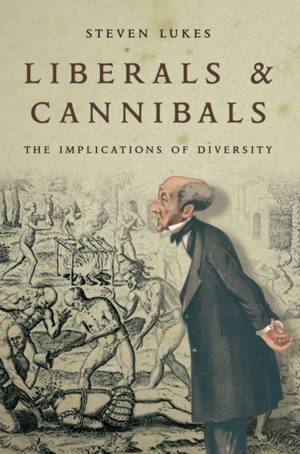
- Afhalen na 1 uur in een winkel met voorraad
- Gratis thuislevering in België vanaf € 30
- Ruim aanbod met 7 miljoen producten
- Afhalen na 1 uur in een winkel met voorraad
- Gratis thuislevering in België vanaf € 30
- Ruim aanbod met 7 miljoen producten
Zoeken
€ 17,95
+ 35 punten
Omschrijving
With debates on the meaning of "liberal society" more heated than ever, this is a timely re-issue of a classic text Can the tension between relativism and the moral universalism current in contemporary politics be resolved within the framework of liberalism? How is liberal society to interpret the diversity of morals? Is pluralism the appropriate response? How does pluralism differ from the widely condemned ethnocentric relativism--"liberalism for the Liberals, cannibalism for the cannibals"? Confronting liberal thought with its own limitations, Steven Lukes' work is more relevant than ever. While recognizing the dangers of moral imperialism, Lukes argues that a relativist position based on identifying clearly distinct cultural and moral communities is incoherent. Drawing on work in anthropology and philosophy, he examines the nature of social justice, the politics of identity and human rights theory.
Specificaties
Betrokkenen
- Auteur(s):
- Uitgeverij:
Inhoud
- Aantal bladzijden:
- 192
- Taal:
- Engels
Eigenschappen
- Productcode (EAN):
- 9781784786472
- Verschijningsdatum:
- 31/01/2017
- Uitvoering:
- Paperback
- Formaat:
- Trade paperback (VS)
- Afmetingen:
- 140 mm x 208 mm
- Gewicht:
- 281 g

Alleen bij Standaard Boekhandel
+ 35 punten op je klantenkaart van Standaard Boekhandel
Beoordelingen
We publiceren alleen reviews die voldoen aan de voorwaarden voor reviews. Bekijk onze voorwaarden voor reviews.











